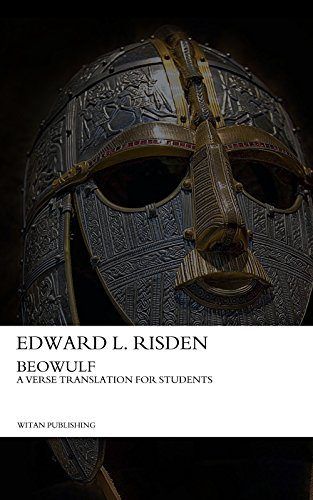Thelma Trujillo in Medievalists.net:
 The tenth-century epic poem, Beowulf, is the longest surviving poem in Old English. Before the poem was transcribed in a single manuscript, now known as “The Nowell Codex, it was orally transmitted, which explains the alliteration, metrical structure, and memory aids alluding to previous events. At a surface-level, the poem is about a Geatish warrior who is employed to kill monsters, becomes king, and then gets killed by a dragon. Moreover, the poem also gives us some insight into the sociocultural context of early medieval England—the poem considers the politics of the comitatus bond (the relationship between lord and retainer), the history of several Germanic tribes, and as some scholars note, the transition from paganism to Christianity.
The tenth-century epic poem, Beowulf, is the longest surviving poem in Old English. Before the poem was transcribed in a single manuscript, now known as “The Nowell Codex, it was orally transmitted, which explains the alliteration, metrical structure, and memory aids alluding to previous events. At a surface-level, the poem is about a Geatish warrior who is employed to kill monsters, becomes king, and then gets killed by a dragon. Moreover, the poem also gives us some insight into the sociocultural context of early medieval England—the poem considers the politics of the comitatus bond (the relationship between lord and retainer), the history of several Germanic tribes, and as some scholars note, the transition from paganism to Christianity.
Since the manuscript is written in Old English, and because the text itself has been subject to emendations, rebinding, and even, a fire, for most readers, the poem is not accessible. Luckily, there are dozens of Modern English translations of Beowulf. The following three translations are a good place to start…
More here. [Thanks to Jennifer Ouellette.]
